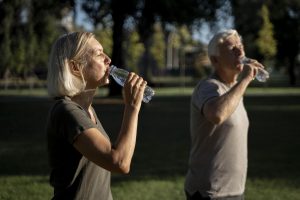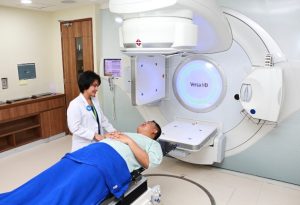During the holiday season, many people would like to take their parents or grandparents for a vacation. However, planning a vacation with the elderly is not as simple as taking young adults or teenagers with fit condition and easy to adapt with the environment. The elderly often have comorbidities such as hypertension, diabetes, high cholesterol, or with frailty like difficulty in walking, climbing stairs, or have risk of falling.
First of all, choose a destination which is elderly friendly. What kind of destination would be friendly for the elderly? For example, do not choose activities that are physically strenuous like outbond, river tracking. Even going to the zoo can be too tiring. Find locations that does not have many stairs or provide wheelchair ramp for easy access.
Secondly, if staying in a hotel, choose a hotel that has less stairs and a wheelchair access. Resort style hotel can be very beautiful but also difficult to access from the lobby with many stairs and different elevations. It should also not be very secluded for easier medical emergency access if needed.
Thirdly, consult your doctor prior to the trip especially if it is out of town or overseas. Make sure that the doctor has already consented the health condition for the trip. Prepare medications including routine medications because it would not be easy to find it in the holiday destination especially medicines with precription.
Fourth, we must take note the daily diet of the elderly so that during the trip, the elderly can maintain their healthy diet which will surely impact their overall health and make the trip more enjoyable for all. This usually include avoiding sugary treats for diabetic patients or high cholesterol food for those with hypertension and high cholesterol level. Bring along healthy snacks that are commonly consumed at home.
Fifth, the elderly need to be assisted at all times during the trip whether it is by the caregiver or family member because the elderly usually needs assistance in daily activities such as walking, bathing, eating, and also to prepare food and medications. In the frail elderly, assitance is even more important because there is a risk of falling.
Lastly, if it is not possible for the elderly to join the vacation due to the the points above. Some examples like patients with difficulty in walking, unconscious, difficulty in communicating, or feeding with NGT, then it is better to be at home with a trusted caregiver. If there are no available caregiver at home then it is better to place in a respite care or hotels for the elderly.
In Indonesia, respite care is still very new. It offers specific medical care in hospital settings or at home with medical aids and professional assistance during the vacation period. Kavacare now provides respite care service for the family. Please contact us for further information.
Sumber:



